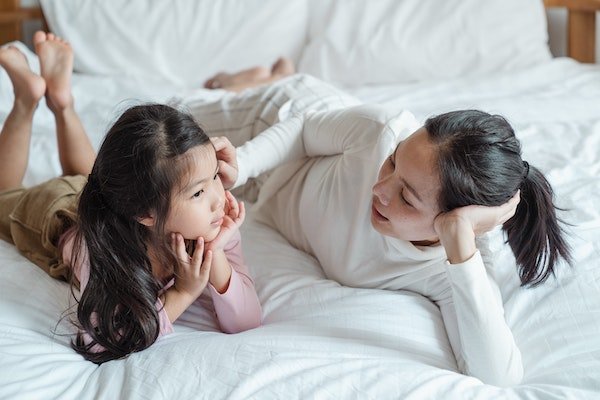Helping Your Anxious Child Is Possible, Here's How
We often think of anxiety as an adult issue. Unfortunately, it can (and does) impact children more than you might think. Kids might struggle with anxiety for a variety of reasons, and it’s often difficult for them to fully understand what they’re experiencing since they might not be old enough to process their emotions.
As a parent or caregiver, realizing your child is dealing with anxiety can be heartbreaking.
Getting to the root cause of their anxiety is the best thing you can do for both of you. Anxiety is often triggered by something specific, so learning what that looks like for your child can give you a starting point for getting them the help they deserve.
But, what else can you do? Thankfully, helping your anxious child is possible. Let’s look at a few solutions that can make a difference.
Educate Yourself
As a parent, one of the most important things you can do is to educate yourself on what childhood anxiety often looks like. Depending on your child’s age, their symptoms and behaviors may change.
For example, a toddler might experience increased irritability, crying outbursts, or difficulties with self-soothing. Younger kids might start to experience regressive behaviors, including wetting the bed.
Kids of any age might start to need more reassurance. They might want more order and routine than before, and they might want to avoid unfamiliar or “new” situations. While no two children are alike when it comes to their anxiety symptoms, knowing the basics can make it easier for you to spot and help with your child’s worries early on.
Show Support Without Enabling
It’s normal to want to do whatever you can for your child to provide them comfort and to assure them that they’re safe – no matter what.
But, there is a difference between being supportive and enabling your child’s fears. For example, if your child is struggling with social anxiety and wants to stay home from school, allowing them to continuously do so is enabling them. That doesn’t mean you should “force” them to go to school without figuring things out. But, don’t give in to their fears or they’ll never learn to overcome them.
Help Them Manage Symptoms
You might not be able to completely eliminate anxiety from your child’s mind. But, you can help them learn how to manage it, so they can feel more in control of their symptoms.
Talk things through with them, and encourage them to learn how to handle their fears in a healthy way. You can start by being a model, yourself. You might struggle with anxiety or depression, too, and your child is always watching whether you realize it or not. By staying calm and being mindful, you can take control of your symptoms and show your child that it’s possible to manage what they’re feeling.
Seek Professional Help
Aside from learning why your child is struggling, the best thing you can do is to get them professional help. A therapist is a great resource for kids with anxiety. Not only will a therapist help your child better understand where their anxiety is coming from, but they’ll come up with age-appropriate techniques that will make it easier for them to manage it.
Those techniques can be used as your child continues to grow. When they know how to manage their symptoms and anxious thoughts, they can use those skills well into adulthood and have a better handle on their mental well-being.
If your child is struggling with anxiety, no matter their age, don’t hesitate to contact us. We’re happy to provide more information or help you set up an appointment for them soon for child therapy.

